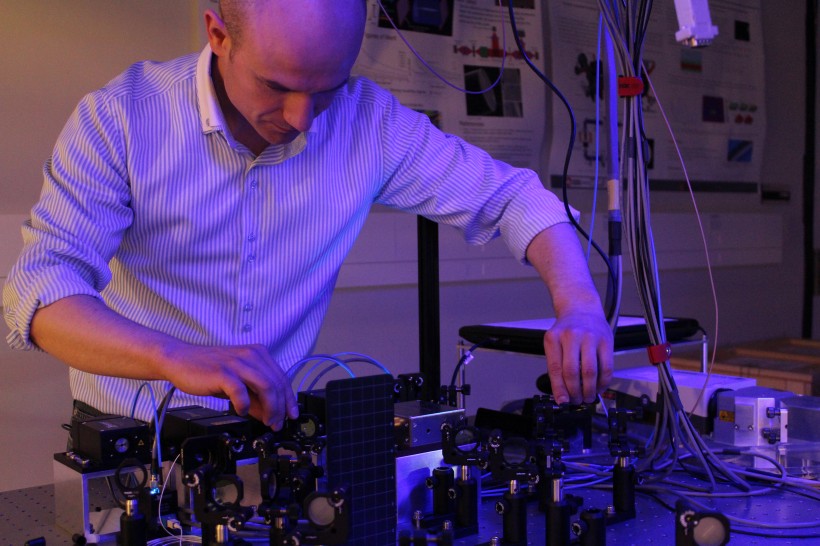Here’s a fact about the Institute of Quantum Computing that we can all get our heads around: tea is served each day at 4 p.m.
It’s a custom that Executive Director Raymond Laflamme started at the University of Waterloo facility a few years ago. He imported it from his time at Cambridge University, where he studied under Stephen Hawking. Now it’s a daily routine at the institute in the Mike & Ophelia Lazaridis Quantum-Nano Centre at the University of Waterloo.
Other than that morsel of information, discussion of what they do at the IQC can be a daunting subject. The IQC website itself says it’s all right to be a bit baffled by the concept and potential of quantum computing. But if the 23 faculty members, four research assistant professors, 108 graduate students and 41 post-doctoral researchers who toil at the institute are correct about the prospects of quantum computing, the whole world of technology will be revolutionized.
“Quantum technology is a topic worth getting very excited about. The possible applications cut across almost every imaginable field, including sensor technology, ultra-secure communications, and high performance computing,” said Paul Salvini, CEO of the Accelerator Centre. “Quantum computers will be able to solve problems that even today’s most powerful computers cannot easily tackle. The potential impact on society is likely to be on a scale similar to what we have already seen in the era of digital computing.”
Read our Full Report on KW's Startup Scene
The computing system we use today is digital – meaning that it uses a long string of “bits”, which encode either a zero or a one to process information.
Quantum computing, on the other hand, processes information using the laws of quantum mechanics. A quantum computer uses “qubits”, and a qubit can be a zero or a one or both. What that means is that – in theory – there would be exponentially more variables that the quantum computer can process than a conventional computer. And that means that successful advances in this new field could render all of the computers we use today obsolete – too slow, too cumbersome, too vulnerable to security breaches.
“Today we are harnessing the power of the smallest quanta of matter,” said Laflamme. “As a result, technologies in computing, secure communications, medicine and beyond are emerging that will transform our lives. We already have spinoff technologies on the market and the future of quantum technologies is boundless.”
There is a huge range of opinion on when universal quantum computing will be a reality. Optimists say it will be five to eight years, whereas skeptics question the entire viability of the concept. Be that as it may, there are already some startups developing around the field at the IQC. They include:
- Universal Quantum Devices: Co-founded by Laflamme and Thomas Jennewein, UQD offers devices for the measurement of entangled photon sources – a key component of quantum information science.
- Evolution Q: This is a consulting firm in cyber-security – it helps companies and government understand how they can maintain security in their networks should quantum computing become a reality.
- High Q: This company is working on extremely sensitive sensors for material science and biochemistry.
- And Neutron Optics: this company is building components for the next generation of neutron science.
Some of these companies are working on support for the quantum computing industry, while others are planning businesses using the quantum-based technology itself. They are all pioneers and expect to grow as activity in the field increases.
“From a commercialization point of view, these are still early days, but we already have several startup companies emerging out of research in this area,” said Salvini. “We’re also very fortunate to have the world-class Institute for Quantum Computing right here at the University of Waterloo.”










